8 POPULAR “FAT BURNER SUPPLEMENTS” TO LEAVE ON THE SHELF
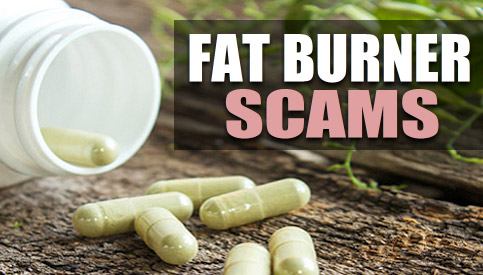
Losing fat requires consistent proper training, nutrition and steady discipline from week to week.
The simple truth is that there are no special “shortcuts” when it comes to achieving a lean and impressive body.
Unfortunately, that’s not what the billion-dollar weight loss supplement industry has led many people to believe.
With over one-third of Americans now clinically obese, “fat burner supplements” have become a very easy sell and have completely flooded the marketplace over the past few decades.
After all, who wouldn’t want to swallow a few pills, sit back, and watch as the excess fat effortlessly melts away?
Unfortunately, the vast majority of these products are only very mildly effective at best, and at worst, they’re a complete waste of money and are even potentially dangerous to your health.
In this post I’ll be giving you the real scientific truth behind 8 popular fat loss supplements that are claimed to help you burn fat, when in reality all they’ll likely do is burn your bank account.
The Truth Behind 8 Top-Selling Fat Burner Supplements
CLA
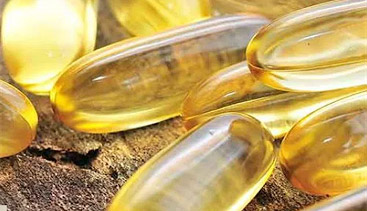
What Is CLA?
CLA (conjugated linoleic acid) refers to a mixture of polyunsaturated fatty acids.
Many different forms exist, but one known as “c9t11” (cis-9, trans-11) and the other as “t10c12” (trans-10, cis-12) are the specific forms that are most commonly referred to.
The primary dietary sources of CLA are ruminants (e.g. cows, sheep, and goats). These animals produce CLA in their digestive tract which can be obtained from their meat and milk.
CLA is also sold in supplement form and is claimed to stimulate fat loss by:
– Activating the “PRARa receptor” which promotes the breakdown of fatty acids.
– Inhibiting the “PRARy receptor” which decreases appetite and reduces the production of new fat cells.
– Increasing basal metabolic rate.
What Does The Science Say?
CLA seems promising on paper, but the real world results don’t seem to show much of an effect.
When looking at the human research that has been conducted on CLA supplements up to this point, most of what we see is either a very minor benefit or no benefit at all.
A double blind study testing the effects of daily CLA supplementation versus a placebo in 122 obese subjects showed no statistical difference in body weight or fat mass between the groups. (1)
Several other human CLA studies have come to the same conclusion showing that supplementation does not induce measurable fat loss and does not prevent weight gain. (2, 3, 4, 5, 6, 7)
Not only that, but research from the Uppsala University in Sweden found that CLA supplements actually decreased insulin sensitivity by 15% in a group of obese men. (8)
Insulin sensitivity plays a very important role in optimizing nutrient partitioning, which essentially refers to whether the food you consume is more likely to be stored in muscle tissue or fat mass.
The Bottom Line
When taking into account the multitude of CLA studies showing no significant weight loss benefits (and that the studies that do show positive effects are quite weak and unreliable), CLA is almost certainly one of the many “fat burner supplements” out there that are best avoided.
L-Carnitine

What Is L-Carnitine?
L-carnitine is an amino acid that is mainly concentrated in tissues which predominantly use fat for energy, such as skeletal and cardiac muscle.
It plays an important role in transporting fatty acids into the mitochondria of the cell where they can be burned for energy.
Companies market l-carnitine as a fat burner supplement for this reason, claiming it will improve body composition by encouraging greater amounts of fat to be burned during and after exercise.
What Does The Science Say?
The fat loss mechanisms of l-carnitine make sense in theory, and there do seem to be some positive benefits associated with supplementation. However, it only appears to increase fat loss in those who are deficient.
Those at risk for l-carnitine deficiency include vegans, vegetarians and the elderly, as well as those with low meat intake or compromised l-carnitine utilization.
One study showed improvements in body composition and blood parameters with 2g of l-carnitine given to elderly individuals over a 30 day period, while another using 2g over a 6 month period also had measurable effects on decreasing fat mass. (9, 10)
Unfortunately, its fat burning benefits don’t seem to carry over to younger subjects with normal l-carnitine levels. (11)
L-carnitine does appear to influence fat utilization during and after exercise, however the effect is small enough to where it does not actually translate to increased overall fat loss. (12, 13, 14)
The Bottom Line
While there are many theoretical reasons why l-carnitine should lead to greater rates of fat burning, it doesn’t appear to carry over to the real world in the vast majority of individuals unless they are specifically deficient in l-carnitine.
Raspberry Ketones
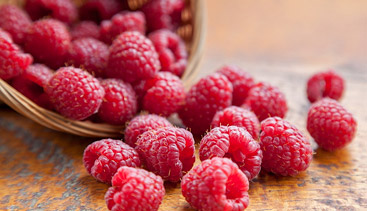
What Are Raspberry Ketones?
Raspberry ketones are a natural substance found in various fruits such as blackberries, cranberries, kiwis, and of course, raspberries.
They are often used in cosmetics and processed foods for their strong flavor and aroma.
It is claimed that raspberry ketones stimulate fat loss by increasing the activation of certain genes involved in fat burning (such as adipose triglyceride lipase and hormone sensitive lipase), as well as by making the body more sensitive to the fat burning catecholamine norepinephrine.
What Does The Science Say?
Some research (though mixed and inconclusive) does show that when taken in high doses, raspberry ketones can produce fat burning effects in fat cells.
However, all of the studies examining this were either conducted on single cells in vitro (in a test tube) or on rats using very high concentrations which cannot be replicated through oral supplementation in humans. (15, 16, 17)
Rat studies used a dosage of .545-2.18g/kg, which would equate to 80-340mg/kg in humans.
That would mean anywhere from 870-3700mg for a 150lb person all the way up to 1500-6200mg for a 250lb person.
Even at these very high dosages it isn’t known how significant the fat burning effect would be, or if there would be any significant benefit at all.
The Bottom Line
There are no studies in humans to date showing any reliable fat loss effects from raspberry ketone supplementation.
The only study that did demonstrate a small benefit involved raspberry ketones taken in combination with caffeine, capsaicin, garlic, ginger and synephrine, so whether or not the raspberry ketones actually contributed to the overall result is unknown. (18)
Hoodia
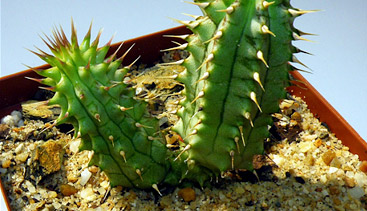
What Is Hoodia?
Hoodia Gordonii is a small shrub native to the Kalahari Desert in South Africa.
It is promoted as a fat burner supplement for its ability to suppress appetite and decrease overall food intake.
Since burning fat ultimately comes down to maintaining a calorie deficit by consuming fewer calories than you burn, anything that helps to keep appetite regulated will be a useful tool throughout the weight loss process.
What Does The Science Say?
The main active compound in hoodia (P57) has been shown to reduce food intake in rats receiving direct injections into the hypothalamus. (19)
However, studies on humans using oral supplementation have not been able to replicate this effect.
A randomized, double-blind study on a group of mildly overweight women found no significant effect on energy intake between a placebo and a hoodia supplement. (20)
This is likely because P57 cannot easily reach the brain through oral supplementation in order to exert its appetite suppressing effects.
Not only does hoodia appear ineffective at inducing weight loss in humans, but it may also be mildly toxic and therefore unsafe for supplementation.
The Bottom Line
Hoodia gets a thumbs down as a fat loss supplement since it doesn’t appear to work for its intended purpose and could even be potentially dangerous.
Green Coffee Bean Extract
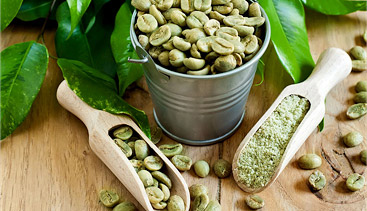
What Is Green Coffee Bean?
Green coffee beans are simply coffee beans which haven’t yet been roasted. (Coffee beans are naturally green colored)
Green coffee beans contain a compound called chlorogenic acid that is normally removed once the coffee is roasted.
Chlorogenic acid is claimed to increase metabolic rate and reduce the absorption of carbohydrates, leading to improved fat loss and body composition.
What Does The Science Say?
Mice and rat studies have found that chlorogenic acid can reduce body weight by decreasing fat absorption, increasing the fat burning hormone adiponectin, and activating fat metabolism in the liver. (21, 22)
Some human studies have also shown minor positive effects in overweight and obese individuals, though the results have been fairly weak and inconclusive overall. (23, 24)
Many of the studies included serious methodological flaws, and several were also sponsored by the same companies selling green coffee bean extract.
This doesn’t necessarily mean the results are invalid, but it is a factor to take into account due to the increased risk for bias.
Some studies have also shown no fat loss benefit at all associated with green coffee bean extract supplementation.
For example, a placebo-controlled, randomized trial from Japan looked at the effects of 480mg of green coffee extract supplementation on 28 subjects and found no difference in body mass changes between the groups. (25)
A meta analysis reviewing the available human studies on green coffee bean extract and weight loss concluded:
“… the results from these trials are promising, but the studies are all of poor methodological quality. More rigorous trials are needed to assess the usefulness of GCE as a weight loss tool.” (26)
The Bottom Line
It’s possible that down the line new studies will emerge showing clearer fat burning benefits from this supplement, but based on the available evidence, I can’t see any reason to go out and spend your money on green coffee bean extract at this time.
Garcinia Cambogia

What Is Garcinia Cambogia?
Ever since Dr. Oz. labeled Garcinia cambogia as a “revolutionary fat burner supplement”, the popularity of this pumpkin-shaped fruit skyrocketed.
Garcinia cambogia is a source of hydroxycitric acid and is claimed to aid weight loss by inhibiting the enzyme “citric acid lysase”, which in turn blocks fat production.
It is also claimed to reduce appetite by enhancing the taste experience of meals, thereby increasing overall satisfaction.
What Does The Science Say?
Although Garcinia cambogia does seem to improve fat loss in rat and mice studies, the benefits don’t appear to carry over to humans.
One study had 86 people supplement with 2g of Garcinia cambogia daily. After 10 weeks, the researchers found no significant difference in weight loss or food intake between the Garcinia cambogia supplementation group and those who received a placebo. (27)
Another 12 week randomized, double-blind trial found that those who took a placebo lost more weight than those who supplemented with hydroxycitric acid. (28)
One study did note a minor fat burning benefit, but the effect was quite small and unreliable. (29)
The Bottom Line
Garcinia cambogia is yet another over-hyped weight loss supplement that is big on claims but weak on real world results. Even if it does have some measurable effect on fat loss, it’s likely so small so as to be essentially irrelevant.
White Kidney Bean Extract
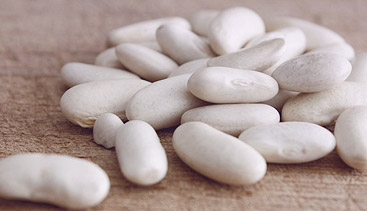
What Is White Kidney Bean?
Typically marketed as a “carb blocker”, white kidney bean extract is a fat burner supplement claimed to inhibit the uptake of starches in the small intestine.
The starches are left undigested and are excreted with the calories being unabsorbed, or they are eaten by colonic bacteria.
The idea is that by blocking the digestion of carbohydrates, they can’t be stored and thus won’t lead to additional fat gain.
What Does The Science Say?
Based on the available research, white kidney bean extract does appear to reduce the absorption of starches to some degree. (30, 31)
Unfortunately, the effect is very minor and unreliable in humans and may literally work out to the caloric equivalent of simply having a few less bites of food. (32, 33, 34, 35)
Along with inhibiting the absorption of carbohydrates, white kidney bean may also have the negative effect of reducing the uptake of various vitamins, minerals, antioxidants and other nutrients from the foods you eat alongside it.
The Bottom Line
While white kidney bean extract may indeed have a very small “carb blocking” effect, it is quite small and inconsistent overall.
If your goal is to curb hunger during a dieting phase, employing certain nutritional strategies such as increasing vegetable intake, eating sufficient protein, moderating the size of your calorie deficit etc. will be a much more effective approach.
Green Tea Extract
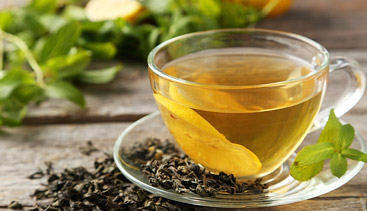
What Is Green Tea Extract?
Green tea is one of the most widely consumed teas in the world.
Green tea extract is a concentrated form that condenses the active ingredients found in the tea into capsules.
Along with a wide variety of overall health benefits, green tea extract is commonly sold as a fat burner supplement for its effects on regulating certain hormones involved in thermogenesis, which is the number of calories the body burns as heat.
The key player in this is the catechin found in green tea known as “EGCG” (epigallocatechin gallate) in combination with its caffeine content.
What Does The Science Say?
Green tea extract was specifically saved for last on this list since it is one of the very few fat burner supplements that does appear to induce measurable effects on fat loss. (36)
However, the effect is still modest in the overall picture and nowhere near what many supplement companies selling green tea fat burners will claim.
For example, one study found a 4% increase in calorie burning over a 24 hour period when using a combination of 50mg caffeine and 90mg EGCG 3 times daily. (37)
Another study using a similar combination found that participants burned an average of 179 additional calories for the day in comparison to the placebo group. (38)
Furthermore, a study on 115 overweight women demonstrated an average weight loss of 2.4lbs. over a 12 week period when supplementing with 856 mg of green tea extract daily. (39)
This all sounds reasonable on paper for burning a small amount of extra fat throughout your cutting program, but there’s one very important kicker here…
Green tea extract only appears to induce significant fat loss benefits in those who don’t consume caffeine regularly.
If you’re a coffee or tea drinker, green tea extract likely won’t do much at all for you in the fat burning department.
And given the fact that the average caffeine consumption in the U.S. is around 300mg per day, it’s unlikely that most Americans – or other individuals with a high habitual caffeine intake – will experience fat loss effects from green tea supplements.
This is something virtually all supplement companies selling “green tea fat burners” never tell you, and it’s why green tea extract is still included in this list despite the fact that it may be beneficial to a certain segment of the population.
The Bottom Line
If you don’t consume caffeine regularly, a high potency green tea extract (providing around 400-500mg of EGCG daily) may provide a very small additional effect to aid you in your fat loss efforts.
If you do consume caffeine regularly, you’re likely wasting your money on these products if fat loss is your central goal.
8 “Fat Burner Supplements” To Avoid: Quick Recap
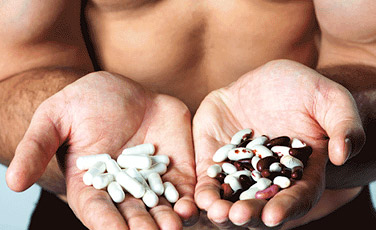
There are some supplements out there that can be useful in conjunction with an overall fat loss program (such as protein powders, fish oil, multivitamins, creatine, certain pre-workout compounds etc.), but most traditional “fat burners” are not one of them.
Shady supplement companies can hype these products up all they want, but the research clearly shows that the vast majority provide a very minimal benefit to no benefit at all. In some cases, they can even be dangerous to your health.
Factor in the hefty price tag on most of these pills and powders, and the decision to save your cash and invest your time, effort and money elsewhere would be a wise one.
If you found this article helpful, make sure to sign up for your FREE custom fitness plan below...




